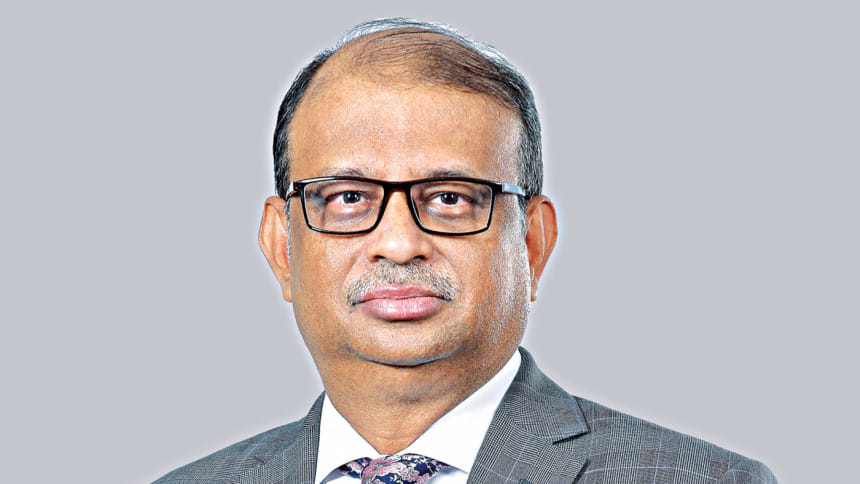“EBL aims to pioneer digital lending”

TDS: What is the current status of digitalization within your organization?
Ali Reza Iftekhar (ARI): Eastern Bank PLC (EBL) has consistently led digital transformation in the Bangladesh banking landscape to remain relevant and cater to changing customer banking requirements. Recognized as the 'Fastest Growing Digital Bank' by the International Finance Magazine in 2021, we prioritize innovation, security, and user-friendliness. In 2023, EBL achieved significant milestones in digital banking by introducing WEAREBL wearable payment devices, automating remittance transactions, enhancing the EBL Self-Service platform, and expanding EBL 365. These initiatives reflect our commitment to providing cutting-edge solutions and offering a seamless banking experience. Our future focus involves continued investment in technology to deliver advanced, secure, and user-friendly banking services tailored to evolving customer needs.
TDS: What challenges do you see in implementing digital transformation within the financial sector?
ARI: Challenges in banking digital transformation include need for skilled manpower, limited redundancy in critical systems, and budget constraints. We at EBL are actively addressing these issues through collaboration with Bangladesh Bank, internal audits, and dedicated ICT inspection teams. Proactive adoption of FinTech solutions and strategic use of technologies like virtualization, cloud computing, AI, blockchain, and IoT are part of the bank's approach to optimize resources and navigate the complexities of digital transformation.
TDS: How does your organization guarantee security, encompassing cybersecurity, prevention of forgery, and the safety of data?
ARI: We have taken several steps to prevent such a cyber-attack. Some of them are:
Vulnerability Assessment and Penetration Testing (VAPT): The ICT Division conducts quarterly vulnerability assessments and penetration testing to discover vulnerabilities and system loopholes.
Continuous Monitoring and Incident Response:
a) Continuous monitoring tools and Security Information and Event Management (SIEM) systems have been implemented.
b) A Dark Web Monitoring tool has been implemented.
Perimeter Network Security Control: To prevent external threats, we have implemented several controls at the network perimeter level.
Endpoint Security: Employ advanced antivirus, encryption, and strong authentication methods to secure endpoints.
Data Safety and Protection:
a) Encrypt sensitive data at rest and in transit to safeguard against unauthorized access.
b) Implement access controls, least privilege principles, and role-based permissions to limit data access to authorized personnel.
c) Regularly back up critical data and establish robust disaster recovery plans to ensure data recovery in case of incidents or breaches.
PCI-DSS (Payment Card Industry Data Security Standard) Certification: As part of card payment security, we have implemented the PCI DSS framework. EBL has been PCI DSS certified for the last 7 consecutive years.
ISO 27001 Certification: To enhance the reliability and security of the systems and ensure Data Privacy and Integrity, EBL ICT Division has completed ISO-27001 certification.
TDS: How does digitalization contribute to addressing sustainability and the inclusion of unbanked individuals in the banking sector?
ARI: 'Digital growth' should come at the same pace as 'governance.' Banks need to plan and earmark a substantial investment for having a safe and secure 'ICT infrastructure'.
The future of banking will be very different from today's banking. The digital journey of Bangladesh's banking industry has come a long way, and there is no alternative to embracing technology and understanding the changing needs of customers to cater to their requirements.
TDS: What future plans does your organization have to enhance digitalization?
ARI: EBL aims to pioneer digital lending and enhance MSME financing through streamlined processes enabled by advanced technologies. Embracing AI-driven process automation is a key strategy to expedite loan disbursals and enhance operational efficiency.
Looking ahead, we are committed to exploring AI-based lending solutions for quicker customer access. The integration of IoT will boost operational efficiency, while cloud computing ensures scalability and cost-effectiveness in data management. Customer-centric initiatives include comprehensive data analytics for personalized services and adopting open banking practices for revolutionary customer interactions.

 For all latest news, follow The Daily Star's Google News channel.
For all latest news, follow The Daily Star's Google News channel. 


Comments